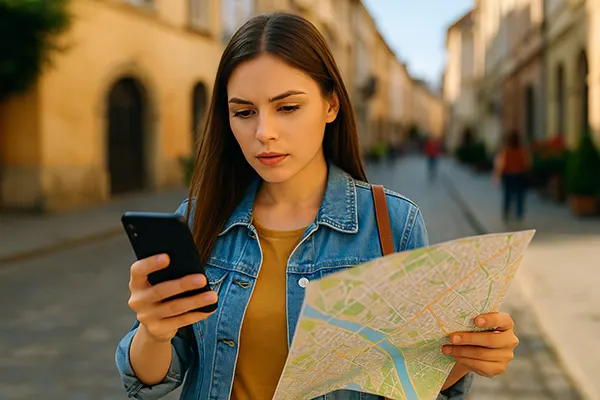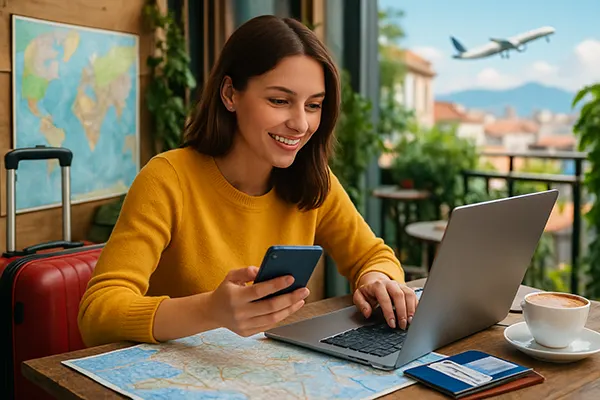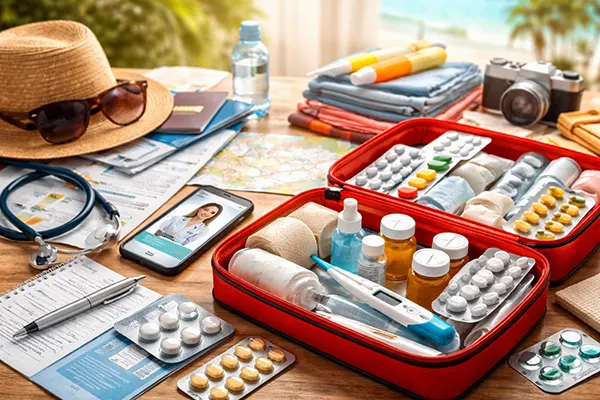
How to Recognise and Avoid “Digital Traps” in Travel Guides and Apps
Modern travel has become deeply intertwined with technology. From navigation apps to digital travel guides, travellers—especially women—rely on their phones to plan, book, and explore new destinations. However, behind the polished design and catchy marketing slogans often lie “digital traps”: manipulative algorithms, biased recommendations, or even misleading sponsorships disguised as advice. Understanding how to identify these traps is vital to making informed, safe, and authentic travel choices in 2025.
Recognising Hidden Bias in Travel Apps
Many popular travel applications claim to offer “personalised recommendations”, yet in practice, they promote businesses that have paid for visibility. This can include restaurants, hotels, or attractions that do not necessarily provide the best quality or safety standards. For example, some booking services prioritise establishments with paid partnerships, pushing down independent or smaller local venues that could offer more genuine experiences.
It is also important to note that user reviews are not always authentic. Fake reviews remain a persistent problem across major platforms, often generated by marketing agencies to boost rankings. These manipulations create an illusion of popularity and trust, influencing travellers’ decisions without transparency. In such cases, cross-checking reviews across multiple independent platforms can help reveal discrepancies.
Women travellers should pay particular attention to safety-related reviews. Some apps may overlook or underplay negative feedback about unsafe locations or services, focusing instead on sponsored content. Therefore, always verify information through local community groups, social media discussions, or trusted travel forums.
How to Detect Manipulative Ratings
Ranking systems are often presented as objective indicators of quality. Yet, most of them rely on weighted algorithms that can be easily influenced by marketing partnerships. A hotel or tour agency might hold a top spot simply due to an expensive advertising deal rather than genuine traveller satisfaction.
To evaluate reliability, check how ratings are calculated. Transparent platforms disclose their criteria, while less trustworthy ones remain vague. For example, if an app never explains how it aggregates reviews or what percentage of its listings are paid, it is a clear warning sign.
Additionally, avoid relying on a single ranking list. Comparing results from various sources—such as TripAdvisor, Google Maps, and independent travel blogs—offers a more balanced view. Remember, consistency across different review sources often signals authenticity.
Evaluating the Source of Travel Guides
Branded or influencer-created travel guides are another source of potential bias. While some creators genuinely share personal experiences, others work under sponsorship agreements that shape their recommendations. A café featured in a “Top 10 brunch spots” guide may appear due to collaboration, not merit.
Before trusting a guide, examine who published it and what their motivation might be. Established publications with transparent editorial policies and verified contributors tend to maintain credibility. In contrast, user-generated or influencer-driven guides often lack fact-checking and may prioritise commercial interests.
Look for signs of responsible authorship—such as mention of local research, interviews, or first-hand experience. Guides written by women for women often provide additional insights into safety, accessibility, and comfort, helping travellers make more confident decisions.
Cross-Checking Information and Building Trust
Reliable travel information can always be verified through independent sources. If a guide or app promotes a destination heavily, research whether other trusted outlets mention it similarly. This step is crucial for avoiding tourist traps that charge inflated prices or exaggerate cultural authenticity.
Moreover, pay attention to how up to date the content is. Locations and safety conditions can change rapidly, especially after global events or natural disasters. Outdated data may still circulate online, posing potential risks to travellers relying on it.
Developing a habit of verifying information builds digital literacy—a vital skill in the era of algorithmic recommendations. It empowers travellers to separate genuine advice from commercial influence and to value experience-based expertise over polished marketing.

Practical Tips for Avoiding Digital Travel Manipulation
There are several practical steps travellers can take to protect themselves from misleading travel content. Firstly, use open-source or community-based mapping tools that are not driven by commercial partnerships. These platforms often provide more authentic insights into local culture and accessibility.
Secondly, when using booking services, compare options directly through official hotel or transport websites. Third-party intermediaries frequently add hidden fees or remove flexibility from cancellations. Reading the fine print remains essential, even for seasoned travellers.
Finally, prioritise digital safety. Malicious travel apps may request unnecessary access to contacts, location, or payment details. Always download verified applications from trusted sources and review privacy permissions regularly to prevent misuse of your personal data.
Empowering Independent Decision-Making
Building awareness about digital traps transforms travellers into more conscious consumers. Instead of following automated suggestions, learning to evaluate data independently fosters a more fulfilling and secure travel experience.
Women, in particular, benefit from connecting with verified online communities and travel networks that share authentic insights. These communities often provide valuable safety updates, real recommendations, and practical travel support based on lived experiences rather than commercial intent.
By adopting a critical mindset, travellers reclaim control from manipulative systems. They learn to trust verified facts, not algorithms, and to make choices rooted in authenticity, safety, and genuine curiosity about the world around them.




